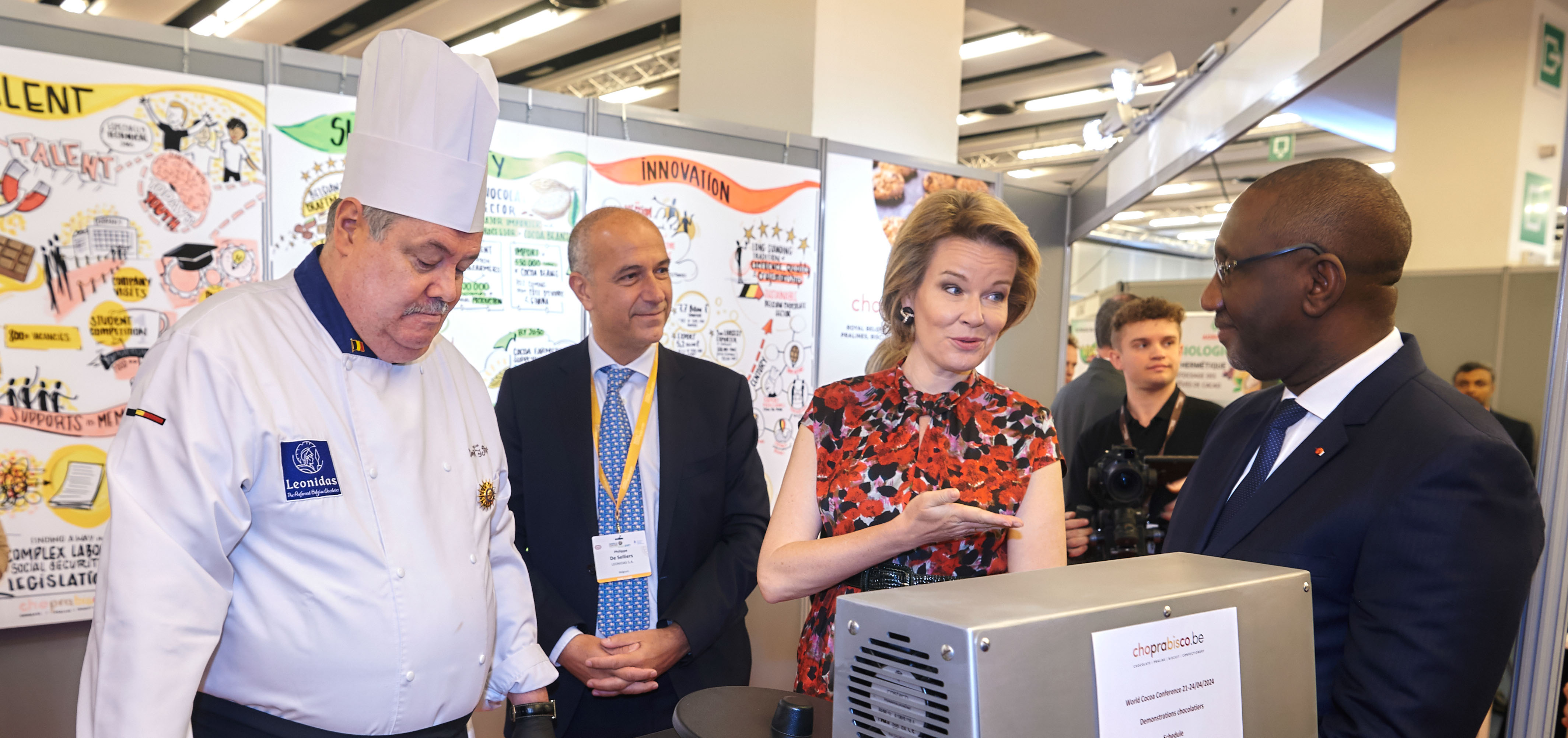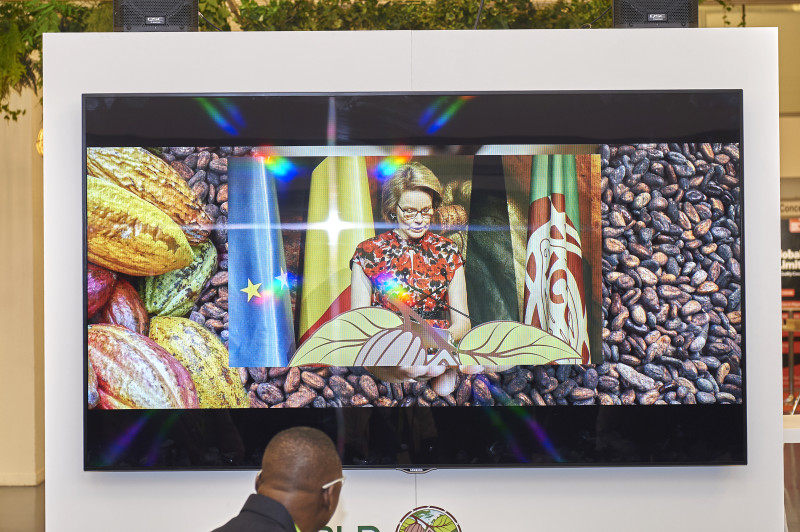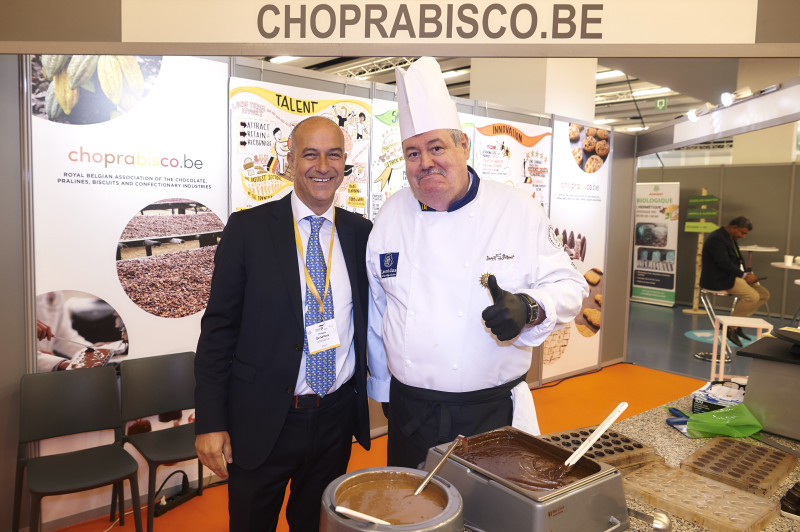How do we make sure we assign the right value to sustainably farmed cocoa? This was the main topic at the World Cocoa Conference. No fewer than 1,000 stakeholders, including Choprabisco, descended on Brussels to affirm their commitment to ensuring sustainable chocolate.


70% of cocoa beans is sourced from Ivory Coast and Ghana
The chocolate supply chain faces numerous challenges. Each year, Belgium chocolate processors import over 300,000 tonnes of cocoa beans, over 70% of which is sourced from Ivory Coast and Ghana. Countries where most cocoa farming smallholders live in poverty, which comes with a heightened risk of child labour and/or deforestation.
This explains why ‘Paying more for sustainable cocoa’ was the main topic of the fifth edition of the World Cocoa Conference. No fewer that 1,000 stakeholders from every corner of the globe got together to affirm their commitment to their ambitions for a sustainable cocoa industry.
The biggest event in the cocoa industry was held from 21 through 24 April in Brussels and was organised by the Belgian Federal Public Service (Ministry of) Foreign Affairs, Foreign Trade and Development Cooperation and the International Cocoa Organisation (ICCO). Queen Mathilde opened the conference, speaking in no uncertain terms: “Many cocoa farmers live in destitution and are forced to send their children out to work the fields rather than to school.”
Delivering on the Beyond Chocolate undertaking
The Royal Belgian Association of the Chocolate, Praline, Biscuit and Confectionery Industry, which abbreviates as Choprabisco, also attended the Conference to support the reputation of sustainable Belgian chocolate and the know-how of our chocolatiers.
Belgian chocolate is held in the highest regard at home and abroad as a product of exceptional quality. Exporting 668,000 tonnes of chocolate makes Belgium world’s second biggest chocolate exporter. In addition to quality, consumers expect cocoa and chocolate to also be sustainable. Which is why the Choprabisco sub-association, along with other stakeholders, in 2018 put its shoulders to the wheel of the Beyond Chocolate initiative aimed at making the Belgian chocolate industry more sustainable.
“It is not on for us to be able to enjoy Belgian chocolate whilst cocoa farmers in other parts of the world have the misfortune of not being able to make a living wage”, Choprabisco Advisor Mieke Callebaut comments.
Where is the industry at with its undertaking? A run-down of the progress made >

Attracting talented people to make the difference worldwide
Home to 14,200 employees, Choprabisco is one of the key sub-industries of the general Belgian food industry, which employs a total of no fewer than 100,000 food heroes. Nonetheless, the industry has around 800 vacancies a year that go unfilled among its member-companies, who are increasingly scouting for talented people with the right skill sets.
Youngsters need to be encouraged to pick up on the wide range of artisanal and highly technical opportunities in the country’s yummiest industry. Partnerships with schools, dual learning and open days, guided tours of company premises and internships are the perfect springboard for young people to join our businesses.
“The future of the industry lies in the hands of motivated young people who are looking to build their career working at chocolatiers or our chocolate, biscuit and confectionery companies. We need to enthuse, attract and train them to make the difference worldwide”, says Philippe de Selliers, President of Choprabisco.
The industry faces three major challenges: sustainability, innovation and talent. Choprabisco assists its members in acting in response to these challenges and in strengthening the excellent position of Belgian chocolate.

